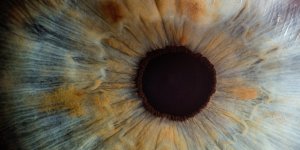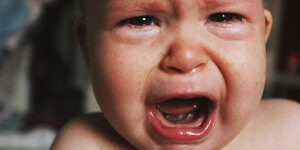Congenital Glaucoma

Voted Best of Berks—
eight years in a row!
Congenital glaucoma, sometimes called infantile, pediatric or childhood glaucoma, is a form of glaucoma that affects children, most commonly between birth and the age of three. Although rare, it is serious and is a major cause of blindness in children. If detected early, most children respond well to treatment.
If you suspect that your child may have glaucoma, Eye Consultants of Pennsylvania offers a highly skilled team of board certified ophthalmologists who have vast experience in childhood glaucoma and all methods of managing the disease, both medically and surgically.
The board certified, fellowship-trained Glaucoma specialists at Eye Consultants of Pennsylvania include Mehul H. Nagarsheth, MD, who received his medical degree from Drexel University College of Medicine and completed his glaucoma fellowship at Tufts New England Eye Center and Ophthalmic Consultants of Boston, and Abhishek Nemani, MD, who received his medical degree from the State University of New York Upstate Medical University in Syracuse and was fellowship-trained in at the prestigious Scheie Eye Institute at the University of Pennsylvania.
What Causes Congenital Glaucoma?
“Congenital” means that the glaucoma is present when the baby is born. It is usually caused by improper development of the cells and tissue in the eye’s drainage system before birth. This leads to a backup of fluid inside the eye which increases intraocular pressure and damages the optic nerve. If not treated, it can result in permanent vision loss.
In some cases, childhood glaucoma is genetic, but not always. If there is a family history of the disease and the first and second children have it, the risk is greater in other children. An abnormal drainage system may also be the result of other disease activity in the eye, such as iris, corneal or other eye problems.
According to the Glaucoma Research Foundation, congenital glaucoma affects one in every 10,000 babies born in the U.S. and affects twice as many boys as girls. In about 75% of cases, the glaucoma affects both eyes.
Are There Signs and Symptoms of Congenital Glaucoma?
Parents may notice one or more of the following symptoms, often when the child is three to six months old, but they can occur at any age during childhood:
- Intolerance or oversensitivity to light
- A cloudy cornea (which is normally transparent)
- Excessive tears
- Enlargement of one or both eyes
Some children have no symptoms at all, while others experience non-eye symptoms, such as general fussiness, loss of appetite and vomiting.
How Is Congenital Glaucoma Diagnosed?
To accurately diagnose childhood glaucoma, a thorough eye examination is necessary to examine all parts of the eye and measure the intraocular pressure. In infants or children under the age of four, this may need to be done in an operating room with the child under general anesthesia. A procedure called a gonioscopy helps the doctor determine whether the eye is functioning properly: producing, circulating, and draining the fluid or aqueous humor within the eye.
How is Childhood Glaucoma Treated?
The glaucoma can often be treated through a goniotomy or trabeculotomy surgical procedure, although more than one operation may be necessary. These are invasive procedures that cut the trabecular meshwork drainage system to improve the flow of fluid and reduce the pressure inside the eye.
Another procedure, called a trabeculectomy, is most often performed in adults but can be helpful for children if the other procedures are unsuccessful. Part of the trabecular meshwork drainage system is removed to create a new drainage canal. In advanced or resistant cases, other procedures such as laser iridotomy or glaucoma implant surgery may be recommended to improved fluid drainage and lower eye pressure.
Medications may also be used to decrease the production of fluid and control eye pressure. They are usually topical eye drops and oral medications. These drugs may cause side effects and must be carefully administered.
Although lost vision cannot be restored, most children with congenital glaucoma live active lives with proper treatment. If you are in the Reading, Pottsville, Pottstown, Lebanon and Wyomissing, PA area and are concerned about your child’s eyes, get in touch with Eye Consultants of Pennsylvania to find out more about the treatment options.
For an appointment, call toll-free 1-800-762-7132.
Find a Doctor
Physician information including education, training, practice location and more.
Schedule an Appointment
Call 800-762-7132 or make an appointment online.





